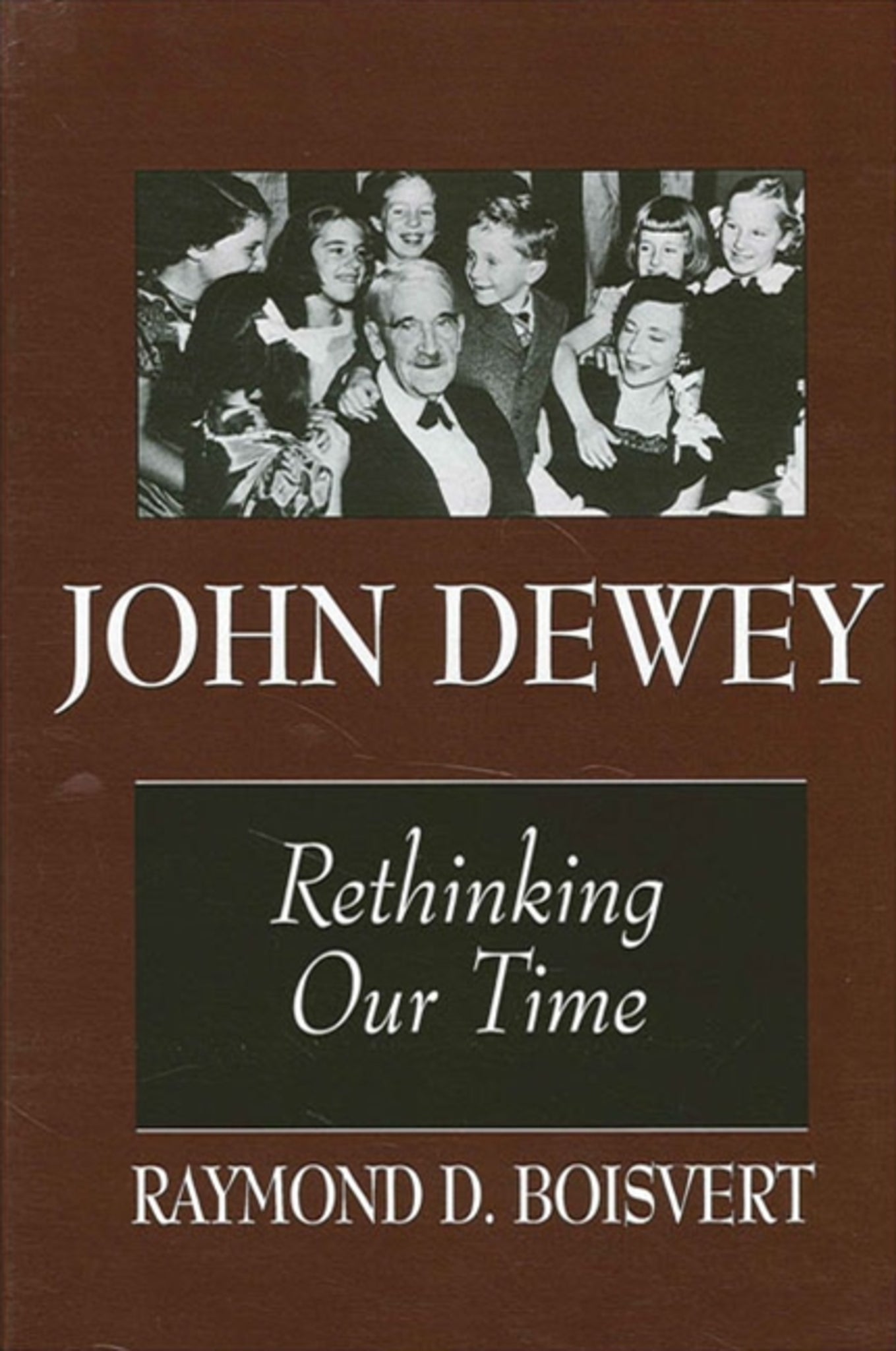We're sorry. An error has occurred
Please cancel or retry.
John Dewey

Some error occured while loading the Quick View. Please close the Quick View and try reloading the page.
Couldn't load pickup availability
- Format:
-
31 October 1997

A concise, eminently readable introduction to the thought of America's most prominent philosopher.
CHOICE 1997 Outstanding Academic Books
Written in a manner accessible to non-specialists, this book provides an introduction to all areas central to John Dewey's philosophy: aesthetics, social and political philosophy, education, the philosophy of religion, and theory of knowledge. Boisvert situates Dewey as a thinker who could appreciate the advance of science while remaining an "empirical naturalist" committed to the revelatory powers of lived experience.


"Ray Boisvert describes his little book as a 'primer,' whose 'aim is to serve as a brief and generally accessible introduction to Dewey's philosophy.' He succeeds admirably … Boisvert, while also limiting himself to exposition, attempts to articulate Dewey's thinking in terms of the philosophic and public discourse of our time." — International Studies in Philosophy
"This book is superbly written: clear, elegant, scholarly. It is a model of lucidity by a major Dewey scholar. It is far better than anything else in print as an introduction to the thought of John Dewey. Boisvert illuminates themes in Dewey with a variety of highly interesting examples drawn from literature, contemporary French and British philosophy, and science. This will be the book people will buy to get an overview of a major American philosopher." — Thomas Alexander, Southern Illinois University at Carbondale
"This book helpfully integrates Dewey's diverse theories in terms of three central themes that reappear throughout his wide-ranging thought: the rejection of simple, monistic solutions, the challenging of purificationist reductions, and the refusal of disembodied idealisms. The author touches on all of the major areas where Dewey made a significant contribution to philosophy, from metaphysics and theory of knowledge to ethics, politics, and the philosophy of art, education, and religion." — Richard Shusterman, Temple University
List of Illustrations
Acknowledgments
Introduction
The "Naissance" and "Renaissance" of American Philosophy
Dewey's Reconstruction of the Tradition
1. The Life-World
Lived Experience
The Fallacy of Intellectualism
The Primacy of Interaction
Temporality and Possibility
Responsibility
Evaluating Philosophy
2. Thinking
Against Epistemology
Copernican Revolutions
Spectators or Inquirers?
The Traits of Inquiry
3. Democracy
Winthrop, Locke, and Dewey
Conjoint, Communicated Experience
Freedom as Growth
Equality as Individuality
4. The Public
Mass or Public?
Problems of the Public
Conditions for Reviving the Public
An Effective Public
5. Educating
A Simple Credo
Beyond Modern Man
Occupations
Education is an End in Itself
Education and Democracy
Moral Education
6. Making
Art versus arts
Experience
Imagination, Communication, and Expression
Distraction versus Participation
7. Devotion
Religious versus Religion
The "Load" Carried by Traditional Religions
Faith
God
Cooperation
8. Conclusion
Postmodern or Polytemporal?
Dewey's Relevance
Appendix A: Biographical Data
Appendix B: Dewey in Cyberspace
Notes
Bibliography
Index



